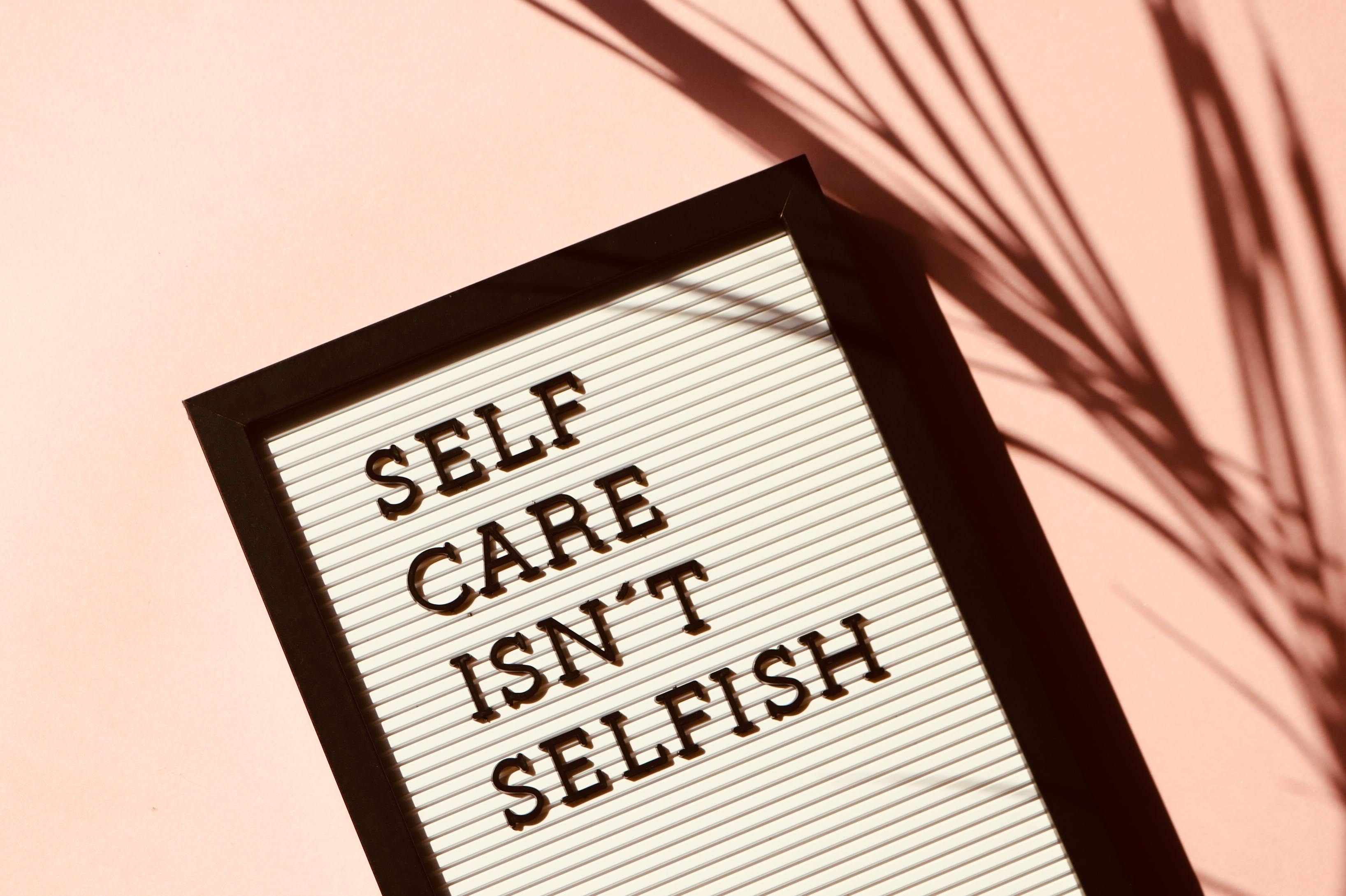Body Burnout: 11 Subtle Signs Your Job is Secretly Aging You
You might notice a few new fine lines or need an extra cup of coffee to get through the day, but have you ever wondered if your job is quietly speeding up the aging process? Many of us think of aging as something that happens naturally over time, yet research shows the modern workplace can nudge those changes along faster than we'd expect. Long hours, tight deadlines, and ever-present technology add up—not just in stress, but in the subtle, everyday ways they shape our bodies and minds. The truth is, these aren’t failings or flaws. They’re gentle signals from your body, asking for a little care and attention. By spotting these early warning signs, you can take practical, compassionate steps to support your well-being. Aging gracefully at work isn't about racing against time, but about making choices that let you show up vibrant and confident in every season of life. Wondering which subtle signs to look out for? Here are 11 gentle clues your job might be aging you more than you realize—and how small changes can help you tip the balance back toward vitality.
1. Persistent Fatigue that Won’t Lift

We all expect a little tiredness after a long week, but does your energy never seem to bounce back, no matter how much you rest? Persistent fatigue is more than just sleepiness—it's a deep, lingering exhaustion that can follow you everywhere, even on quieter days. According to the American Psychological Association, 77% of U.S. employees cite work-related fatigue as their number-one complaint. Stress activates the body's "fight or flight" response, raising cortisol levels and steadily wearing down your system, explains Dr. Herbert Benson of Harvard Medical School. When fatigue becomes chronic, it's a signal your body's reserves are depleted, not just from poor sleep, but from the relentless demands and micro-stresses of your job. If you notice regular crashes, consider tracking your energy dips and sleep quality. Even ten-minute restorative breaks can help, like stepping away from your screen for fresh air or savoring a slow stretch between tasks. Remember, your energy is a resource worth protecting—not a measure of how hard you’re pushing yourself.
2. Changes in Skin and Hair

Have you spotted more fine lines, breakouts, or hair thinning after a stretch of stressful projects? The connection between chronic workplace stress and visible aging is real. According to the American Academy of Dermatology, individuals with high stress experience 40% more skin and hair concerns than average. Stress hormones like cortisol shrink hair follicles and reduce collagen production, shares dermatologist Dr. Michele Green. These changes can show up before you'd expect—sometimes masked as normal aging but actually rooted in unrelenting stress. The good news? Gentle routines like staying hydrated, adding a sunscreen break when you step outdoors, or using a nourishing scalp massage can make a difference. Try viewing these self-care touches not as indulgences, but as small acts of kindness for the skin and hair you live in every day.
3. Frequent Aches and Unexplained Pains

Do your shoulders tense by lunchtime or your back ache after meetings? You’re not alone. Frequent, unexplained aches—especially in the neck, shoulders, or back—are a silent signal your job may be nudging your body ahead on the aging curve. NIH research shows those in office-based roles experience up to 60% higher rates of back and neck pain than peers in other professions. These aches often arise from accumulated tension, stress-induced inflammation, or less-than-ideal work setups. It’s not about blame or poor fitness—it’s exposure, plain and simple. Ergonomic tweaks, regular stretching, and even brief posture resets can provide relief. Remember, pain is your body’s way of gently asking for support. Small, consistent changes—like adjusting chair height or taking a two-minute stretch—can help restore comfort and keep you feeling mobile longer.
4. Brain Fog and Memory Lapses

Ever walk into a room and forget why, or struggle to find the right word in a meeting? Mental slips and “brain fog” are common workplace complaints—especially in high-stress environments. SurveyMonkey found 32% of employees report regular struggles with focus or memory during stressful months. Chronic stress diverts mental resources to “survival mode,” making concentration and recall feel harder than usual. Instead of beating yourself up for being forgetful, recognize this for what it is: your brain waving a white flag, not a sign of laziness or cognitive decline. Try introducing mini mindfulness breaks, such as a quiet minute of deep breathing or a quick desk reset to refocus your attention. Lightening your workload where possible and prioritizing essential tasks can help reduce the mental clutter that makes memory lapses more frequent.
5. Poor Posture and “Tech Neck”

Those long hours hunched over laptops or peering at your phone? They can quietly shape how you stand and move—sometimes leaving shoulders rounded and necks stiff. Mayo Clinic finds that about half of office workers show postural issues, like forward head carriage or “tech neck,” by age 40. These shifts don’t just change how you look—they affect breathing, energy, and mood. But posture is far more adaptable than you might think. Rather than viewing posture as a source of shame, consider it an ever-evolving response to your work patterns. Gentle reminders (maybe a sticky note on your screen) to roll your shoulders back or lengthen your neck can make a world of difference. Even brief standing breaks or a walk around the office keep your spine more aligned, reducing long-term strain.
6. Digestive Upset and Appetite Swings

Digestive discomfort—like bloating, heartburn, or unpredictable appetite—might not be the first sign you connect with workplace stress, but it's a surprisingly common symptom of body burnout. The American Gastroenterological Association reports that 71% of highly stressed workers struggle with GI symptoms. Emotional stress activates the “gut-brain” axis, which can disrupt digestion or trigger cravings for comfort foods. Rather than seeing these symptoms as personal weakness, think of them as your body’s signal that it needs more support. Try scheduling mindful meal breaks and keeping simple, high-fiber snacks nearby. Taking a few breaths before you eat, or savoring your lunch away from your desk—even for just five minutes—can help restore some digestive balance.
7. Getting Sick More Often (and Taking Longer to Recover)

Do you find yourself catching every cold that sweeps through the office, or bouncing back more slowly than you used to? A weakened immune system is one of burnout’s more subtle warning lights. Chronic job stress can suppress immune function and leave you more vulnerable to everyday viruses, according to the American Psychological Association. This isn’t about willpower—it's simple biology working behind the scenes. If you notice this pattern, try reframing rest as an investment in resilience, not a retreat from productivity. Using your sick days when truly needed, prioritizing quality sleep, and drinking enough water give your body the basics it requires to fight back. Your health is your foundation; the strongest work is built on that foundation, not at its expense.
8. Sensitivity to Noise and Light

Does every little noise in the office feel jarring, or do bright lights seem to bother you more than they once did? Heightened sensitivity to sensory stimuli is a lesser-known, but research-backed sign that burnout may be creeping in. The Journal of Occupational Health Psychology highlights a spike in sensory processing issues among those dealing with chronic work stress. This overstimulation can turn routine office sounds or simple lighting into added stressors, draining your energy even before lunch. Strategies like using noise-canceling headphones, requesting access to a quieter workspace, or simply taking short sensory breaks can help create more comfort. Give yourself permission to notice these reactions and adjust your environment where you can—they’re signals, not shortcomings.
9. Emotional Volatility or Detachment

Have you felt more easily irritated lately, or noticed yourself pulling back emotionally at work? Emotional ups and downs—or suddenly feeling out of sync or “numb”—can appear as subtle, wearable signs of workplace aging. Surveys find 64% of employees report irritability connected to chronic stress. These shifts are more than mood swings; they’re biological responses to prolonged demands. Rather than viewing emotional swings as failures of character, try tracking patterns with gentle curiosity. Peer support or even sharing your feelings with a trusted colleague can lighten your emotional load. By honoring your emotional experience, you create more space for recovery—and a chance to feel whole at work once again.
10. Loss of Motivation and Passion

Remember when you used to look forward to tackling new projects or found satisfaction in the little wins of a workday? If those moments now feel rare, you’re not alone. Loss of motivation is a key marker of burnout, and it’s deeply tied to the sense of accelerated aging on the job. The American Psychological Association notes job disengagement can both signal and speed up burnout, making daily tasks feel heavier than they’re meant to be. Setting micro-goals—like celebrating one task checked off—or seeking small learning opportunities can help reignite engagement. Understand that motivation naturally rises and falls, and a quiet period doesn’t mean you’ve lost your spark for good. Permission to rest can be the space where your purpose returns.
11. Self-Care Slipping Off the Agenda

If meal prep, movement, or simply a moment to yourself are the first things to disappear from your week, it’s likely a sign that burnout is wearing down your reserves. Dr. Christina Maslach, a pioneering researcher on burnout, notes that chronic workload overload leads to self-neglect, which accelerates both physical and mental aging. Before blaming yourself for falling behind on self-care, recognize that these habits are often the first to go when resources are low. Book time on your calendar for a walk, lunch away from your desk, or a favorite hobby, even if it’s just for a few minutes. These pauses aren’t selfish; they’re your lifeline to feeling resilient, refreshed, and ready for whatever work throws your way.
Putting It All Together: Honoring Your Body, Reclaiming Your Energy

These 11 subtle signs aren’t meant to make anyone worry—but to help you recognize just how interconnected your work, body, and spirit really are. Each gentle nudge—whether it’s fatigue, mood swings, or a stiff neck—is a thread in the rich tapestry of your wellbeing. By taking note, you empower yourself to make small, sustainable shifts that can reverse the widening gap between how you feel inside and the energy you bring to each day. Remember, aging well isn’t about erasing lines or powering through exhaustion. It’s about listening, learning, and showing up for yourself with the same care you’d offer a dear friend. Because feeling vital and confident—at any age, on any career path—isn’t just possible. It’s something you deeply deserve.